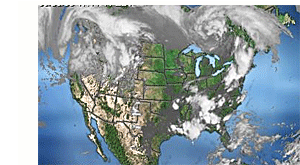|
|
 |
Knowledge Is Key
For Intelligent Decisions
Satellite Logic is a leading,
authoritative source of information in
the Satellite Industry. Located in the
heart of the Silicon Valley, Satellite
Logic provides one of the most
valuable and comprehensive
knowledge bases on the Satellite
market! This is a primary Worldwide
information center which enables our
clients to analyze, evaluate, inquire
and select their best tailored
solutions. Our company sets the
industry standards for targeted
buying leads, reflecting a dramatic
advance over traditional marketing
solutions.
|
|
|
 |

Even though GPS technology simplifies the concept of mapping to
those who use it, it would not be prudent to rely 100% on GPS
systems for your mapping purposes. There are 2 reasons for this:
a) Technology inevitably fails
b) A GPS is NOT a compass. As a result, it doesn't know which way
north is.
It would be a wise idea to carry a map and compass with you when
travelling to unfamiliar locations just in case you encounter a situation
where:
 You run out of power for the GPS system You run out of power for the GPS system
 Your GPS unit is unable to get a fixing on the global positioning Your GPS unit is unable to get a fixing on the global positioning
satellites
 Your unit becomes damaged, and no longer functions Your unit becomes damaged, and no longer functions
In order for a handheld GPS unit to guide you to a destination, the
coordinates must be already programmed into the unit. In such a
case, a compass is still needed to follow the indicated bearings on
the GPS unit. With the use of a map and have the coordinates and
can enter them into GPS unit, it can show you the bearings needed
to get there. This case requires the use of a map also.

So why bother using a GPS system then?
GPS systems really come into their own when used as navigational
tools when landmarks and significant features such as forests or
deserts are cannot be easily read, or are completely obscured by fog.
Another very useful feature offered by GPS units is the ability to
estimate travel speed, and sound alarms as soon as you go off
course. The also have the ability to predict your estimated time of
arrival (ETA) to your destination. This feature does come at the
expense of the use of valuable battery power though, since the GPS
unit must be kept running with a clear vie of the sky at all times.
If for some reason you are lost, the GPS system can give you an
accurate fix (latitude and longitude) of your location (unless you are in
a thick forest or a deep canyon) on a map. To do this, you simply enter
the coordinates of the destination you wish to travel to, and the GPS
unit will calculate the compass bearings needed to get there in a
straight line.
The main issue with the GPS system arises here. The route that it
plans out for you may take you through a swap, or even over a cliff or
other man-made hazards. This is why it is important to also carry a
map and a compass in order to find your way around such dangerous
obstructions in the path to your destination. Without good map-reading
skills, a GPS unit can be dangerous to use.
In conclusion, topographical maps aren't much help in the sense that
they cannot tell you exactly where you are on them. A compass by
itself will tell you were North is, but won't tell you what kind of terrain
to expect ahead. A GPS system by itself is also not much use unless
you have the ability to read off the coordinates, and use them to find
your location on the map. In order to safely navigate the great outdoors,
it is important to accustom yourself to working from map to GPS, and
from GPS to map, all while using a compass as a safety device in
case of failure of the GPS system.
|
|
|
|
